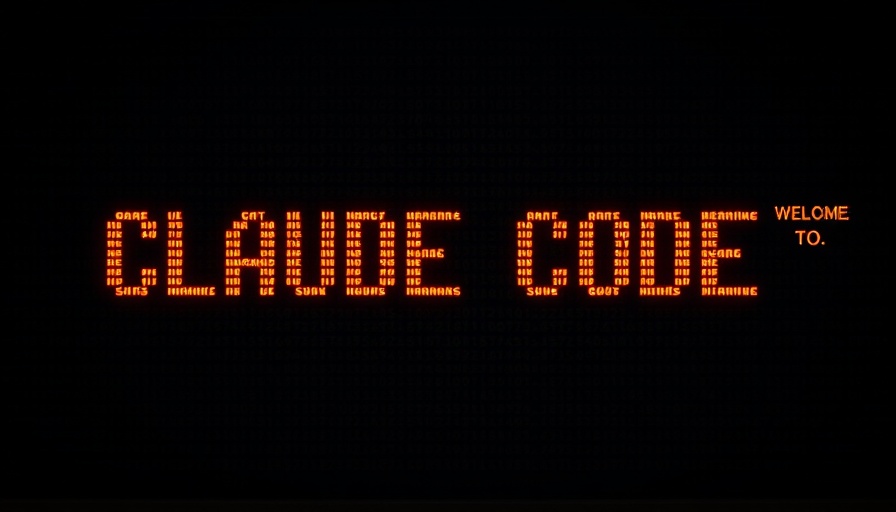
The Claude Code Bug: A Warning for Users
In less than a week since its launch, Anthropic’s Claude Code tool has found itself at the center of controversy due to a critical bug that impacted users significantly, raising questions about the reliability of advanced AI technologies. Reports indicate that the tool's auto-update feature contained faulty commands, leading to the severe malfunction of systems where it was installed with ‘root’ or ‘superuser’ privileges. Such permissions allowed the tool to execute changes within operating systems that should typically remain untouched, resulting in an unexpected phenomenon that users referred to as their systems being 'bricked.'
Understanding the Impact of System Failures
The implications for many tech users are serious. When the commands from Claude Code were executed, they altered critical permissions for system files, making previously secured directories accessible for modification. This not only destabilized systems but, in extreme cases, led them to become unusable. Users reported having to rely on what is known as a 'rescue instance'—a term that refers to a recovery mode to fix the permission settings exacerbated by the buggy commands. The complexity of recovery underscores the intricate interplay between emerging technologies and the systems they operate on.
Anthropic's Response: Has Adequate Action Been Taken?
In response to the overwhelming feedback from users and the community, Anthropic quickly took action to amend the situation. They promptly removed the problematic commands from Claude Code's auto-update function, which is a proactive step toward stabilizing the tool.
Moreover, they have provided an accessible troubleshooting guide to help affected users recover their systems. However, the initial blunder of including a typo in the link to this guide added an additional layer of frustration for many in need of immediate assistance. Prompt corrections can lead to better user relations moving forward.
Broader Implications: Trust and Security in AI
The unfortunate incident with Claude Code transcends beyond just a technical error; it opens a dialogue on the reliance that many professionals in the tech sphere place on AI tools. Trust is critical in tech, especially for users working with sensitive data, as is often the case in blockchain and cryptocurrency environments. The bricking incident serves as a lesson for companies about the importance of rigorous testing and user communication—as well as the need to avoid granting excessive permissions without clear end-user understanding of risks.
Future Recommendations for AI Tools
As the technology landscape continues to evolve rapidly, software developers must focus more heavily on crafting robust solutions. A few essential recommendations include:
- Enhanced Testing Protocols: More thorough testing phases, possibly even beta programs, can help identify issues prior to user exposure.
- Staged Rollouts: Implementing gradual updates can mitigate widespread failure by limiting the number of systems affected.
- Robust Fallback Mechanisms: Automatic reversion systems are crucial; they ensure stability in case an update causes critical issues.
- Clear Communication: Users should be kept informed of potential updates, known issues, and fixes to foster trust and transparency.
The Claude Code controversy offers critical insights into the burgeoning landscape of AI tools, emphasizing the balance that needs to be maintained between innovation and stability. As Anthropic rectifies the faulty update, the tech community watches closely for further developments while reflecting on how to safeguard the future of AI tool deployment.
Conclusion: Move Forward with Caution
While the Claude Code fiasco might be a setback, it also presents an opportunity for Anthropic and similar companies to refine their approach to AI tool development to ensure user trust and satisfaction. Users are encouraged to stay informed and be cautious when adopting new technologies.
 Add Row
Add Row  Add
Add 




 Add Row
Add Row  Add
Add 

Write A Comment